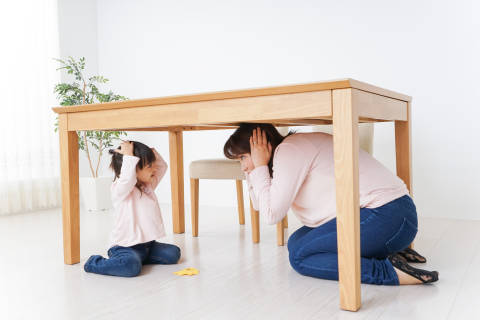We’re about to enter that time of year again: cold and flu season. For many caregivers, this can be a dreaded time of stuffy noses and ear infections. Because children’s immune systems are still developing, it might seem like your child is always getting sick! While they likely can’t avoid getting sick entirely, there are some ways to help reduce the risk.
- Teach your child how to effectively wash their hands.
- Encourage healthy eating.
- Keep your child hydrated.
- Make sure your child gets plenty of sleep.
- Teach “the vampire” method for coughing and sneezing.
- Play outside when possible.
- Stay up to date on vaccinations.
- Create an on-the-go wellness kit.
- Support your child's emotional well-being.

According to the Centers for Disease Control and Prevention, fall and winter mark a rise in cases of the common cold and influenza, usually referred to as the flu. You can read our previous article to learn more about the symptoms of the common cold and flu.
Pediatricians at Baton Rouge General estimate that children might catch the cold about five or six times per year on average, or even as many as 10 times. They also explain that it’s normal for children up to age 3 to have two ear infections and about two or three cases of vomiting per year.
Catching the cold or flu is a normal part of growing up as children’s immune systems continue to develop and strengthen so that they can better fight off these viruses. The best way to minimize your child’s risk is to take preventive measures.
Regular hand washing is one of the best ways to keep your family healthy because it reduces the risk of spreading germs that can cause illnesses, like colds or flu. It's a great idea to start teaching children at a young age the proper hand-washing techniques.
Wet hands with clean water and soap for at least 20 seconds. You can have them sing the Happy Birthday Song to make sure they scrub for long enough.
Rub all surfaces of each hand, including between fingers.
Rinse well under running water for at least 30 seconds.
Some caregivers like singing the Hand Washing Song to make hand washing more fun for their child.
A healthy, balanced diet provides the fuel children’s bodies need to develop strong immune systems. Where you can, provide your child with fruits, vegetables, and whole grains to try. Do your best to limit the amount of sugar that your child eats or drinks. Pediatricians have found that eating a lot of sugar can negatively affect the development of children’s immune systems. Our free cookbook (available online to view or download) has some great healthy recipe ideas you can try.
If you have any questions about what foods are best for your child's health, talk to their pediatrician or a registered dietitian.
Staying hydrated means ensuring that your child drinks plenty of fluids—primarily water—throughout the day to keep their body properly nourished and functioning at its best. When the body is hydrated, it is easier for viruses to stick to the mucous membranes, rather than enter into the body.
An example of a mucus membrane is the lining inside your nose, also known as the nasal mucosa. This moist, protective layer helps to trap and filter out bacteria and viruses. The next time your child blows their nose or sneezes, the mucus leaves the body with the virus.
The more sleep children get, the better their immune system will function and the less likely they are to get sick. Sleep Foundation recommends:
Infants between ages 1 month through 12 months should be sleeping for 14–16 hours per 24-hour period
Children between 1 year through 3 years should be sleeping for 11–14 hours per 24-hour period
Children between 4 years through 6 years should be sleeping 10–13 hours per 24 hour period
Teach your child to cover their mouth when coughing or sneezing to prevent the spread of germs. The “vampire” method not only has a fun name, but it encourages your child to sneeze into their elbow, rather than their hand. With the “vampire” method, teach your child to sneeze or cough into the crook of their elbow, much like a vampire pulling a cape over their face, to contain germs and prevent their spread. Then have them wash their hands with soap and water.
Spending time outdoors gives children a break from indoor spaces where viruses can easily spread, which can reduce the risk of infection. Sunlight also provides a natural source of vitamin D, which supports healthy immune systems. Outdoor play encourages physical activity, which increases children’s overall health and well-being.
Immunizations are a safe and effective way to prevent the spread of disease. They're recommended for children and adults to prevent the spread of infection. Vaccinating your child against vaccine-preventable diseases helps keep them healthy, and it also protects other people from getting sick too. Starting at 6 months old, children can begin receiving the flu vaccine, as well as the COVID-19 vaccine. If you have any questions or concerns, don’t hesitate to reach out to your pediatrician.
If you're going to be out and about, it's a good idea to keep a wellness kit in the car. This can include tissues, hand sanitizer, cough drops, children's ibuprofen or another pain reliever for aches and pains—and if you have a thermometer on hand, even better! You might also want to include antibacterial wipes for use when there isn't an opportunity for hand washing after touching public surfaces like door handles or railings at shopping centers (these are especially helpful during cold season).
Maintaining a balanced and healthy emotional state can positively affect children’s immune systems. When children experience chronic stress—also referred to as toxic stress—their bodies will release excess stress hormones, which can negatively impact their immune system, making them more susceptible to illnesses, including cold and flu.
Providing a nurturing, safe environment and teaching healthy coping strategies for stress management can help keep your child healthy. Showing physical affection is another great way to boost your child’s emotional and physical health. Skin contact or physical touch, like hugging and holding, are great ways to help your child grow a healthy brain and a strong body.
Read our previous article to learn more about what you can do if your child does get sick.






